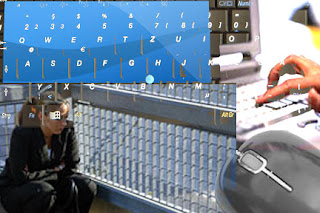Journal Entry Question #6
Monday, June 11, 2007
Cyberbullying is a type of bullying often neglected and pushed aside. Although cyberbullying can be as harmful as any other form of abuse (such as physical or emotional), it's neglected often due to the fact that this is not said to the victim face-to-face but rather on the internet. Cyberbullies, or bullies in general, are often weak and rely on other's depression and embarrassment to raise their confidence. As we learnt at the assembly on cyberbullying, it can affect students greatly, as great as even changing schools solely because of this situation.
Cyberbullying is considered when one threatens, makes fun of, embarrasses, or puts down a victim in a form of media accessible by the internet. This may included cyberbullying from chat rooms, blogs, websites, or the most recent example, Facebook. Facebook is a new community-based web page, like MySpace, that provides users to create new groups expressing ideas about their thoughts on a variety of issues. However, this freedom, may, and did, lead to cyberbullying. Bullies would create groups targeting victims, lowering their self-esteem and confidence. Cyberbullies think that they would never get caught due to the anonymous environment the web tends to create. Those who think this is wrong. Many people are tracked through their computers and revealed.
In my opinion, an option for punishment presented to cyberbullies would be banishment from the website. However, if cyberbullying can be traced more than once on a computer, punishments may be as serious as banishment from the internet as a whole. This would provide a whole new realization on the seriousness of this issue. After a certain period of time, determined by the law on how serious this case was, the user should then be released from his/her punishment and may be allowed to continue enjoying the features of the internet or the website that they were once banned from. This would hopefully teach those cyberbullies a lesson and reduce the number of reported cases of cyberbullying happening in our province.


